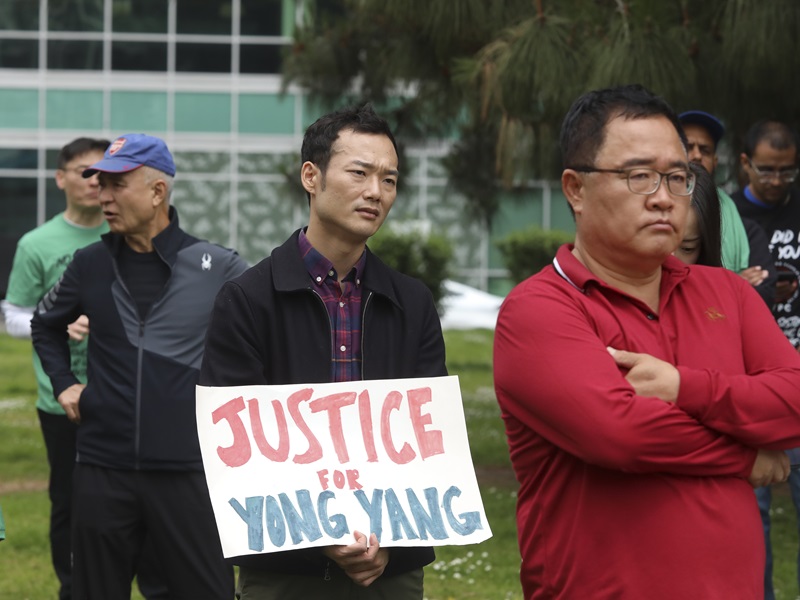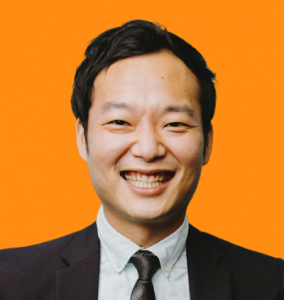On Sunday, June 2, I attended a Koreatown community rally seeking Justice for Yong Yang, who was tragically killed by the LAPD within 10 seconds of law enforcement opening the door to the apartment living room where Mr. Yang was situated.
What was particularly distressing to hear that day at the rally, and something frequently echoed by other mothers and family members, were the words of Yong Yang’s mother, Myung Sook Yang, who tearfully expressed that she had called the County Mental Health Services for help, unaware that her call would lead to her son’s death at the hands of law enforcement.
Less than two minutes after assessment by an on-site clinician from the LA County Mental Health Services, the decision was swiftly made to summon law enforcement, resulting in LAPD’s arrival at the scene. Shortly thereafter, Yong Yang met his tragic fate at the hands of LAPD officers.
Law enforcement is not what is needed to address mental health crises. Continued reliance on this approach has resulted in a disproportionate number of police-involved fatalities involving individuals experiencing mental health emergencies. According to the Treatment Advocacy Center, even by the most conservative estimates, at least one in four fatal encounters with law enforcement involves an individual with serious mental illness.

Furthermore, data analysis suggests that in some cases, as many as half of all law enforcement homicides claim the lives of individuals with severe psychiatric disorders. Moreover, the risk of being killed during an encounter with law enforcement in the community is 16 times higher for individuals with untreated serious mental illnesses compared to other civilians.
Although fatal police shootings of individuals experiencing a mental health crisis have occurred over many decades, it is only recently that there has been an organized movement toward providing unarmed response teams to assist these individuals. Behavioral health issues constitute a significant percentage of 911 calls, with police traditionally serving as the default first responders, handling up to 30% of all 911 calls in some major U.S. cities.
Los Angeles’ Crisis and Incident Response through Community-led Engagement (CIRCLE) program provides a 24/7 unarmed response to non-violent LAPD calls involving unhoused individuals in crisis, deploying teams of mental health professionals and individuals with lived experience. Complementing this are the Systemwide Mental Assessment Response Teams (SMART), which pair county Department of Mental Health staff with police officers.
Similar unarmed response teams in cities like New York City, Atlanta, San Francisco, Denver, and Albuquerque have effectively de-escalated crises, prevented violence, reduced arrests, and lowered police and healthcare costs.
Eugene, Oregon’s Crisis Assistance Helping Out on the Streets (CAHOOTS) program, run by the White Bird Clinic, pairs medics with crisis workers to address behavioral health crises, providing intervention, counseling, basic medical care, transportation, and service referrals. This model exemplifies successful community-based crisis response.
In Chicago, a coalition of community organizers is championing “Treatment Not Trauma,” advocating for a public health model of community wellness comprising three interdependent parts:
Relieving police of ineffective responsibilities as mental health workers and urging the Chicago Department of Public Health (CDPH) to establish a non-police mobile crisis response team for the entire city. Reopening a network of 19 public mental health centers previously operated by CDPH until the 1990s, when most were closed as part of an agenda to privatize care services.
Hiring a large-scale community care worker corps composed of lay residents from Chicago’s neighborhoods with the greatest unmet social, medical, and economic needs.
In previous Congressional sessions, the Restoring Hope for Mental Health and Well-Being Act of 2022, along with other mental health-related legislation, was passed, particularly regarding crisis response. For instance, legislation was enacted to establish 988 as a new three-digit number for the National Suicide Prevention Lifeline, which launched in July 2022. The aim is to reduce interactions between police and individuals in crisis by allocating resources for regional and local call centers, mobile crisis response programs, and expanding community-based mental health and substance use treatment services.
This legislation also expanded the existing 10-state Certified Community Behavioral Health Clinic (CCBHC) Medicaid demonstration program to allow any state to apply for participation. CCBHCs are intended to serve as efficient centralized crisis care hubs, providing 24-hour crisis response, including mobile crisis teams, emergency crisis intervention services, and crisis stabilization, while also offering post-crisis treatment and follow-up, including coordination with other care settings to ensure ongoing treatment continuity.
While it will take years for the 988 legislation to fully manifest in practice nationwide, many states have begun developing related plans and securing funding. However, in California, where mental health funding and services are distributed at the county level, full-scale implementation of the 988 legislation presents challenges. Nevertheless, it is crucial and must be executed carefully. Assessments need to be conducted to determine the current conditions within the landscape of crisis experiences, evaluate available data, and identify where and how these services should be prioritized and made accessible.
Many of us should engage with our LA City Council members, County Board of Supervisors, State Assembly members, and State Senators, urging them to communicate their intentions, plans, and timelines regarding how they will contribute to reshaping the mental health care landscape in light of the recent 988 legislation. This includes ensuring access to preventive mental health care, establishing well-funded and well-structured crisis intervention responses, implementing a network of community clinics for early identification and treatment of mental health issues, providing trained clinicians and counselors for emergency responses, and ensuring sufficient funding and medical insurance coverage for mental health care. These measures are essential to prevent further tragedies involving individuals experiencing mental health-related crises.
On a federal level, there is a need to accurately count and report the number of fatal police encounters and all incidents involving the use of deadly force by law enforcement in a reliable federal database. It is also imperative to systematically identify the role of mental illness in fatal law enforcement encounters.
My heart goes out to Yong Yang and his family and all the families who have been affected by the fatal use of force by police. Our local and state legislation have not caught up, nor are they anywhere near what the federal 988 legislation lays out. No local elected official has stepped up to take the lead in navigating this bureaucratic system for the family or seeking justice for Yong Yang.
It is imperative that the County Department of Mental Health and LAPD respond immediately and cooperate with the family’s discovery requests for all related information and bodycam footage in a timely and straightforward manner. This will ensure that the family is not left in the dark while mourning the loss of their son, who simply needed help during the crisis he experienced.
We must know exactly what protocol and procedures the County Department of Mental Health on-site clinician and related staff, as well as LAPD officers, had to follow or could have been guided by on the day Yong Yang was killed. We need to determine whether the County employees and LAPD officers did, in fact, follow appropriate protocol and procedures accordingly. It’s crucial to understand what factors were taken into consideration, and not, by the County Department of Mental Health on-site clinician and related staff when making the decision to involve law enforcement.
Additionally, we should explore what other measures or steps the County Department of Mental Health on-site clinician and related staff, as well as LAPD officers, could have easily taken to prevent the tragic loss of Yong Yang. We need to investigate what resources and other protocols were available but not used, and what resources and other protocols were not available but could have helped prevent this tragedy.
I urge our community and all those reading to show up and support every action in the future related to seeking justice for Yong Yang. It’s saddening that his story and tragic loss haven’t received more exposure and awareness until now. His loss is an injustice that cannot simply be ignored; it must be remedied.

By David Kim
The author is a lawyer and candidate for 34th Congressional district.




![California Electricity Costs to Rise $320 Under Trump Energy Bill, Analysis Finds U.S. President Donald Trump in the Oval Office at the White House in Washington, D.C., U.S., March 12, 2025. [REUTERS]](https://www.koreadailyus.com/wp-content/uploads/2025/05/0313-Trump-100x70.jpg)